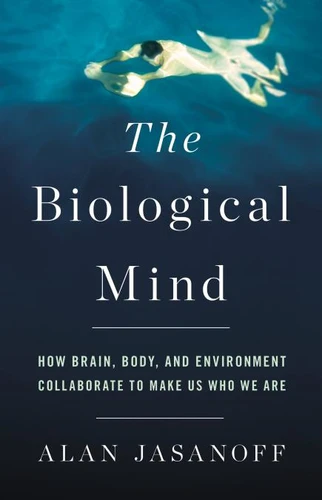The Biological Mind. How Brain, Body, and Environment Collaborate to Make Us Who We Are
Par :Formats :
Disponible dans votre compte client Decitre ou Furet du Nord dès validation de votre commande. Le format ePub protégé est :
- Compatible avec une lecture sur My Vivlio (smartphone, tablette, ordinateur)
- Compatible avec une lecture sur liseuses Vivlio
- Pour les liseuses autres que Vivlio, vous devez utiliser le logiciel Adobe Digital Edition. Non compatible avec la lecture sur les liseuses Kindle, Remarkable et Sony
- Non compatible avec un achat hors France métropolitaine
 , qui est-ce ?
, qui est-ce ?Notre partenaire de plateforme de lecture numérique où vous retrouverez l'ensemble de vos ebooks gratuitement
Pour en savoir plus sur nos ebooks, consultez notre aide en ligne ici
- Nombre de pages304
- FormatePub
- ISBN978-1-5416-4431-1
- EAN9781541644311
- Date de parution12/03/2018
- Protection num.Adobe DRM
- Infos supplémentairesepub
- ÉditeurBasic Books
Résumé
A pioneering neuroscientist argues that we are more than our brains To many, the brain is the seat of personal identity and autonomy. But the way we talk about the brain is often rooted more in mystical conceptions of the soul than in scientific fact. This blinds us to the physical realities of mental function. We ignore bodily influences on our psychology, from chemicals in the blood to bacteria in the gut, and overlook the ways that the environment affects our behavior, via factors varying from subconscious sights and sounds to the weather.
As a result, we alternately overestimate our capacity for free will or equate brains to inorganic machines like computers. But a brain is neither a soul nor an electrical network: it is a bodily organ, and it cannot be separated from its surroundings. Our selves aren't just inside our heads -- they're spread throughout our bodies and beyond. Only once we come to terms with this can we grasp the true nature of our humanity.
As a result, we alternately overestimate our capacity for free will or equate brains to inorganic machines like computers. But a brain is neither a soul nor an electrical network: it is a bodily organ, and it cannot be separated from its surroundings. Our selves aren't just inside our heads -- they're spread throughout our bodies and beyond. Only once we come to terms with this can we grasp the true nature of our humanity.
A pioneering neuroscientist argues that we are more than our brains To many, the brain is the seat of personal identity and autonomy. But the way we talk about the brain is often rooted more in mystical conceptions of the soul than in scientific fact. This blinds us to the physical realities of mental function. We ignore bodily influences on our psychology, from chemicals in the blood to bacteria in the gut, and overlook the ways that the environment affects our behavior, via factors varying from subconscious sights and sounds to the weather.
As a result, we alternately overestimate our capacity for free will or equate brains to inorganic machines like computers. But a brain is neither a soul nor an electrical network: it is a bodily organ, and it cannot be separated from its surroundings. Our selves aren't just inside our heads -- they're spread throughout our bodies and beyond. Only once we come to terms with this can we grasp the true nature of our humanity.
As a result, we alternately overestimate our capacity for free will or equate brains to inorganic machines like computers. But a brain is neither a soul nor an electrical network: it is a bodily organ, and it cannot be separated from its surroundings. Our selves aren't just inside our heads -- they're spread throughout our bodies and beyond. Only once we come to terms with this can we grasp the true nature of our humanity.



